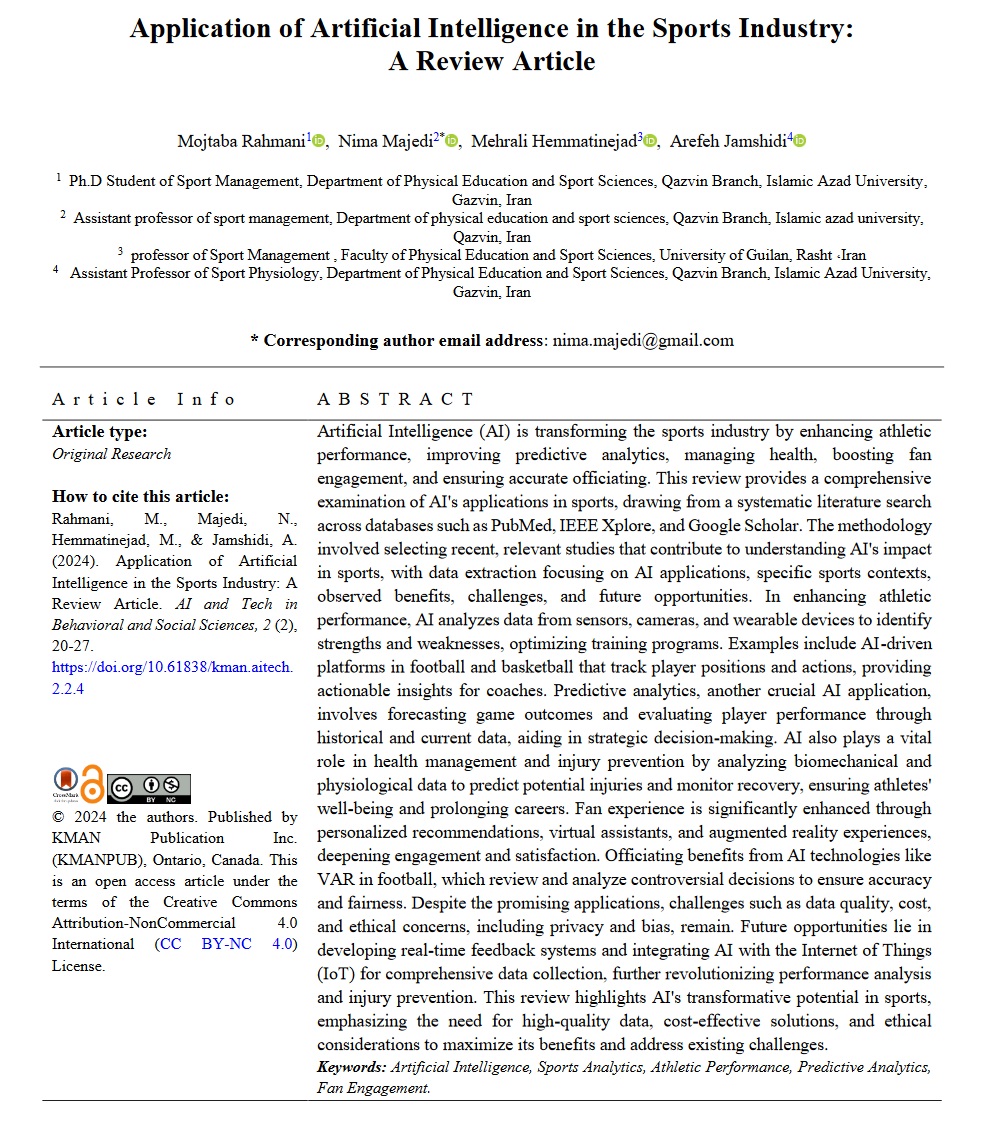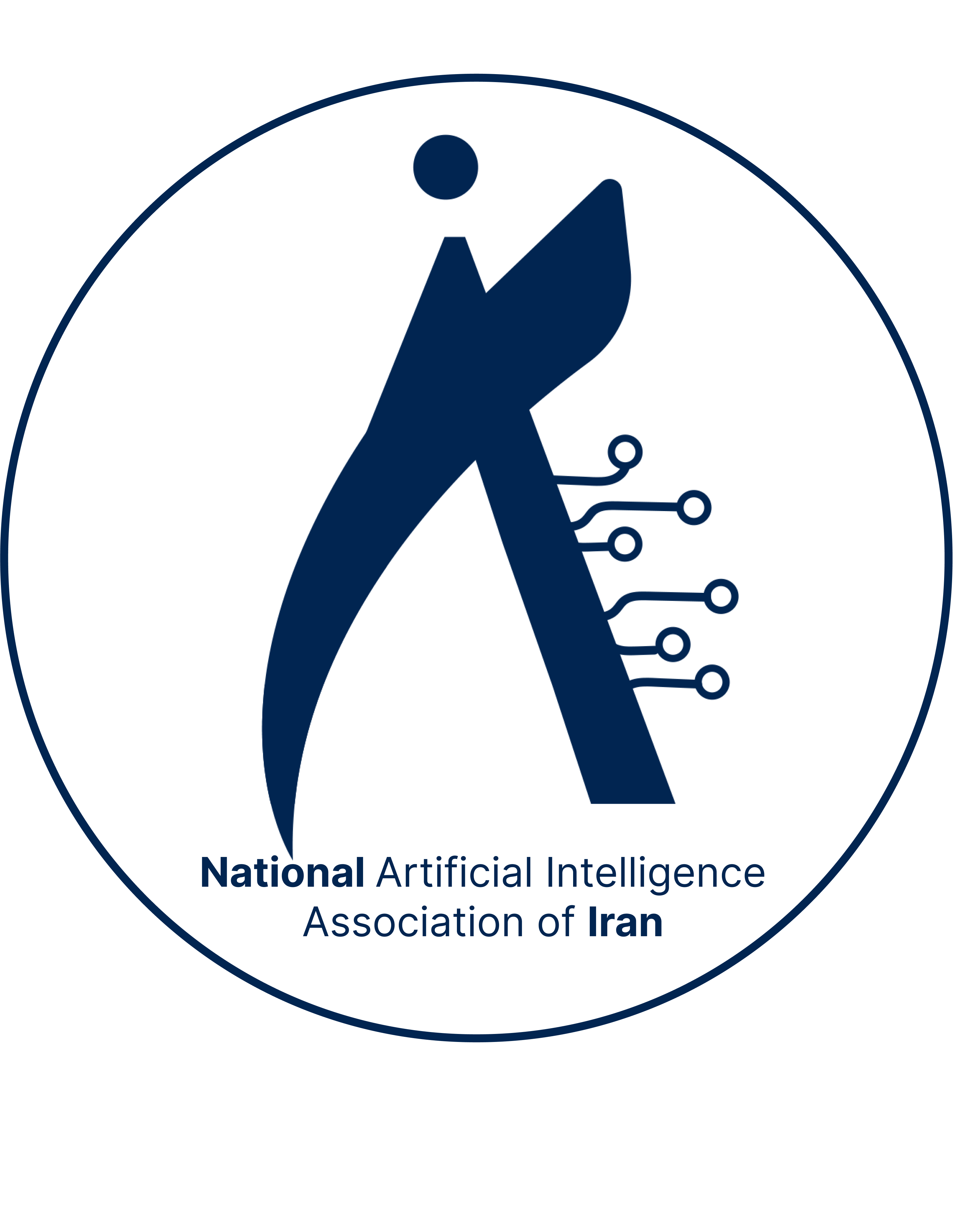Application of Artificial Intelligence in the Sports Industry: A Review Article
Keywords:
Artificial Intelligence, Sports Analytics, Athletic Performance, Predictive Analytics, Fan EngagementAbstract
Artificial Intelligence (AI) is transforming the sports industry by enhancing athletic performance, improving predictive analytics, managing health, boosting fan engagement, and ensuring accurate officiating. This review provides a comprehensive examination of AI's applications in sports, drawing from a systematic literature search across databases such as PubMed, IEEE Xplore, and Google Scholar. The methodology involved selecting recent, relevant studies that contribute to understanding AI's impact in sports, with data extraction focusing on AI applications, specific sports contexts, observed benefits, challenges, and future opportunities. In enhancing athletic performance, AI analyzes data from sensors, cameras, and wearable devices to identify strengths and weaknesses, optimizing training programs. Examples include AI-driven platforms in football and basketball that track player positions and actions, providing actionable insights for coaches. Predictive analytics, another crucial AI application, involves forecasting game outcomes and evaluating player performance through historical and current data, aiding in strategic decision-making. AI also plays a vital role in health management and injury prevention by analyzing biomechanical and physiological data to predict potential injuries and monitor recovery, ensuring athletes' well-being and prolonging careers. Fan experience is significantly enhanced through personalized recommendations, virtual assistants, and augmented reality experiences, deepening engagement and satisfaction. Officiating benefits from AI technologies like VAR in football, which review and analyze controversial decisions to ensure accuracy and fairness. Despite the promising applications, challenges such as data quality, cost, and ethical concerns, including privacy and bias, remain. Future opportunities lie in developing real-time feedback systems and integrating AI with the Internet of Things (IoT) for comprehensive data collection, further revolutionizing performance analysis and injury prevention. This review highlights AI's transformative potential in sports, emphasizing the need for high-quality data, cost-effective solutions, and ethical considerations to maximize its benefits and address existing challenges.
Downloads








